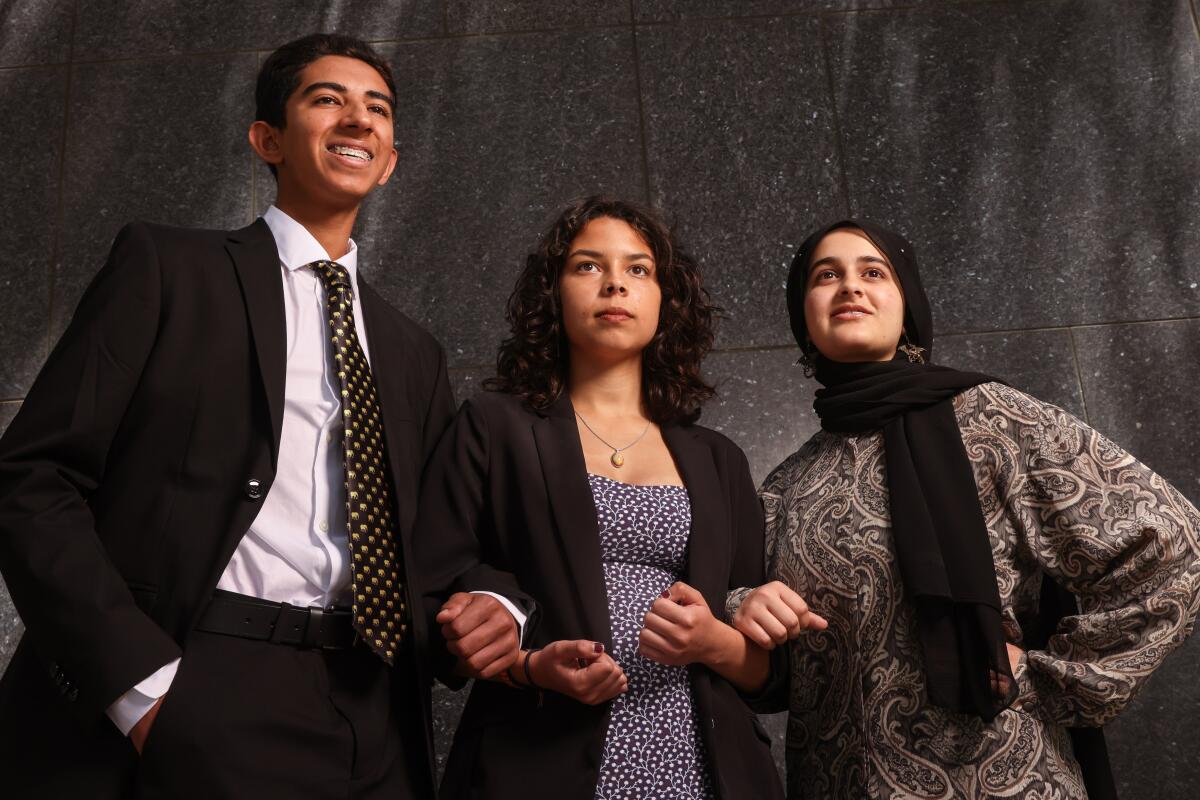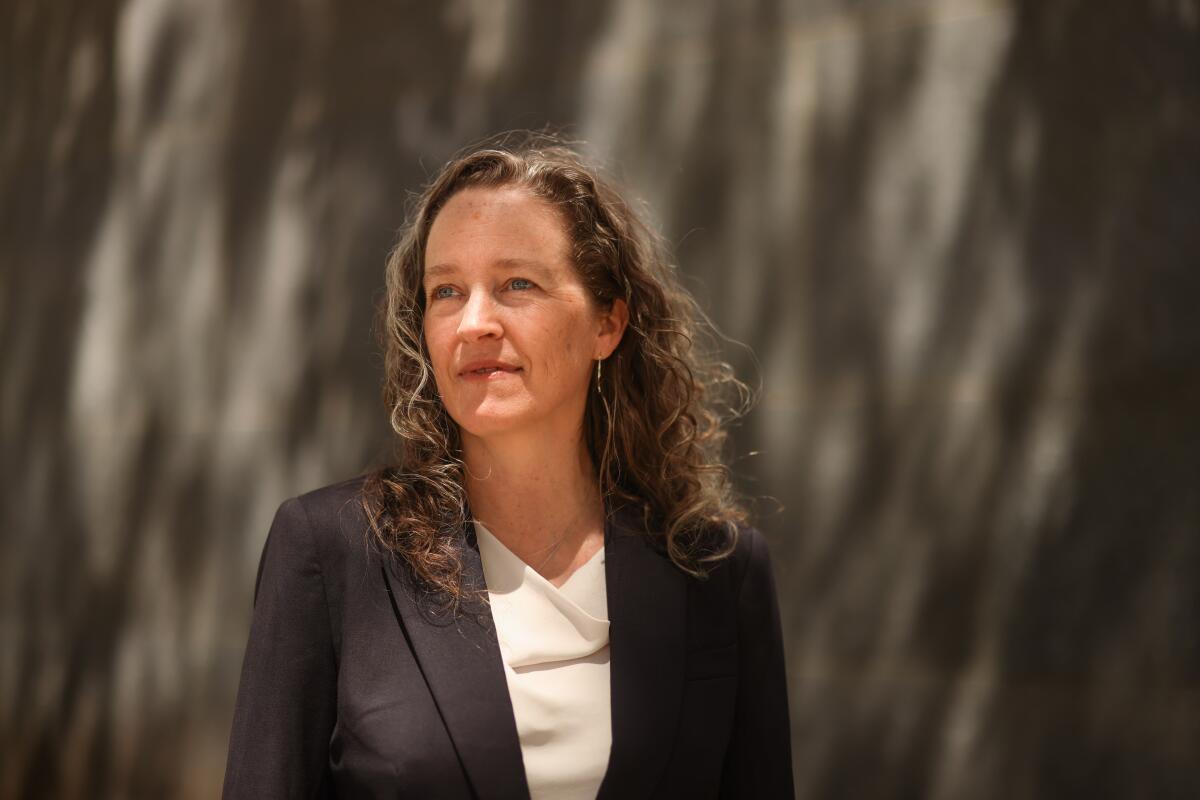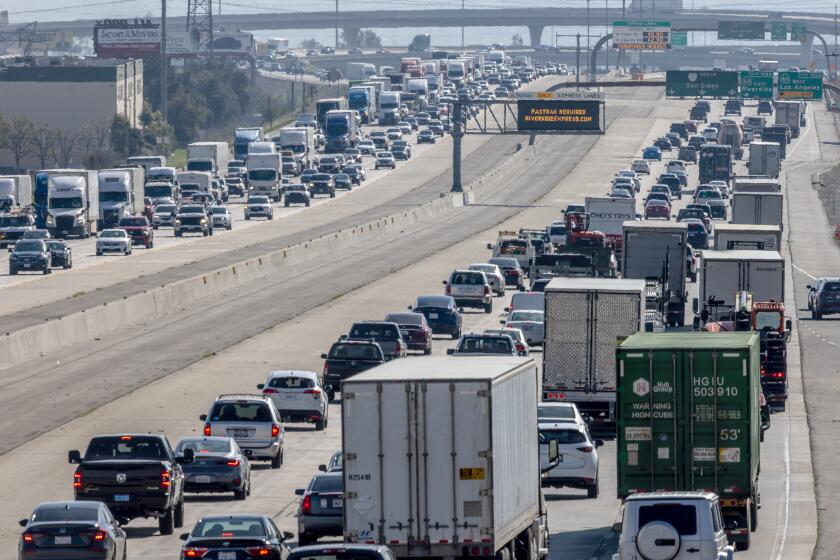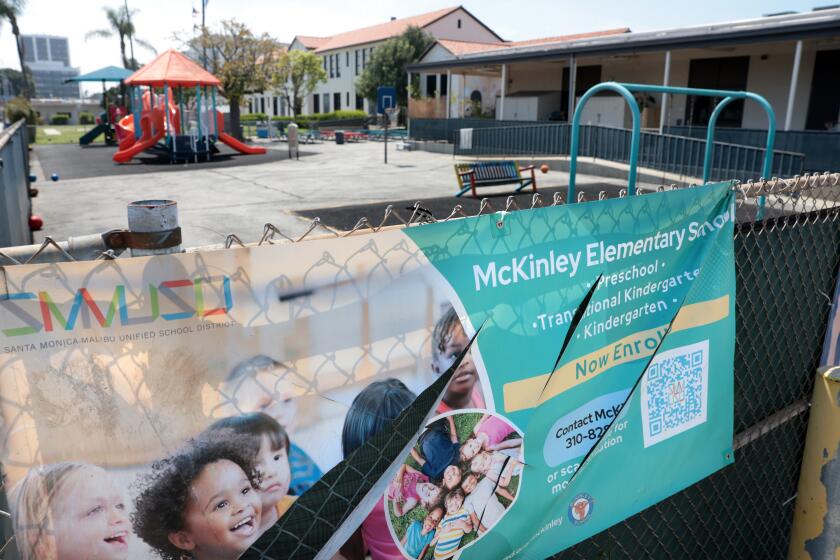Lawsuit appears to be in peril for California children harmed by climate change

- Share via
Eighteen California children who allege the United States’ climate policies intentionally discriminate against minors appeared in federal court this week with their landmark lawsuit in jeopardy.
The children, ages 8 through 17, sued the U.S. government and the federal Environmental Protection Agency for violating their constitutional rights. Their attorneys claim the nation’s environmental policies have allowed dangerous levels of greenhouse gases to be released and accumulate in the atmosphere, knowing these emissions will endanger their well-being and future.
Although younger generations will undoubtedly experience the worst effects of global warming, children have little, if any, recourse to influence the rules that will shape their future.
“Their only redress is not the ballot box, elections or political power,” said Julia Olson, an attorney for Our Children’s Trust, an Oregon-based nonprofit that has filed legal actions over climate change in several states.
Aggressive and impactful reporting on climate change, the environment, health and science.
But U.S. Department of Justice attorneys this week petitioned a federal judge in California to dismiss the lawsuit, arguing in part that the court did not have the authority to make sweeping public policy changes.
Judge Michael Fitzgerald, 64, acknowledged climate change would have profound effects for all Americans, especially those “younger than my age or the president.” But Fitzgerald, who did not make a ruling Monday, said he was inclined to side with the government, noting these decisions should rest with Congress and the executive branch.
“There are ways everyone can express their political views,” Fitzgerald said, noting that he volunteered for an elected official as a child.
L.A., Orange, Riverside and San Bernardino counties received a failing grade on air quality from the American Lung Assn. Again.
In the coming weeks, Fitzgerald will rule on whether the case can proceed to trial. Ironically, in a case adjudicating the rights of children, the 18 plaintiffs — who live in communities that have been devastated by wildfires, flooding or heat waves — remained silent in the courtroom Monday.
Outside of the downtown Los Angeles courthouse, however, the children and their attorneys expressed their desire to be heard.
That included Genesis B., a 17-year-old from Long Beach, whose family does not have air conditioning. She has experienced summer temperatures so hot that she waits until sunset to start homework. By then, she’s typically tired and dehydrated.
Genesis said she hopes Fitzgerald allows the case to move forward, because she feels the suit is their best chance to make a difference.
“I would say just to keep future generations in mind, because this is one planet for everyone,” she said. “One quote I would share with the judge is: ‘We do not inherit the Earth from our ancestors — we borrow it from our children.’”

One of the main arguments of their lawsuit is that the EPA’s analyses of air pollution and greenhouse gases treats the lives of adults as worth more than those of children, according to Olson.
“When the EPA looks at the value of a life, it doesn’t treat a child’s life as worth as much because they’re not income-earners,” Olson said outside the courthouse. “All of that economic analysis drives the government’s decisions on whether to control pollution or to allow it. And if it’s cheaper to allow it, then they’ll keep allowing it.”
Federal attorneys argued no court ruling would be able to fix previous damage from climate change.
But the children and their attorneys argued this case is just as much about mitigating future damage.
“This may not automatically reverse the damage,” said Maryam A., a 13-year-old from Santa Monica. “But I think that you, as government officials, should be able to protect all Americans, regardless of age, gender, race, or anything like that.
“The fact that you are dismissing our claims because we’re children doesn’t invalidate what’s happening to us. And I feel that sometimes people may not take seriously children sitting in a courthouse. But we’re the same as anyone else.”
McKinley Elementary has designs to modernize its campus. But plans are being delayed, and costs are rising since dangerous vapors were found in the soil.
To reduce levels of heat-trapping carbon dioxide in the atmosphere this century, the plaintiffs argue that the U.S. government needs to cease burning fossil fuels by 2050. The Biden administration has set a lofty goal of completely eliminating the nation’s carbon footprint by 2050, although it will take decades of concrete policy action for the nation to achieve that target.
In the meantime, the U.S. and other countries continue to endure record-setting heat, intensifying wildfires and powerful storms.
Avroh S., a 14-year-old student from Palo Alto, said extreme storms and flooding at his middle school caused a power outage and prompted an evacuation. For him and other plaintiffs, these recurring natural disasters only reinforced the importance of their case.
“Apathy isn’t the answer. Action is,” he said. “If climate change wasn’t happening, I wouldn’t be here. I would much rather be hanging out with my friends or in school.”
Los Angeles, Portland and other progressive cities are still powered by faraway coal plants. We went to Montana to find out why.











